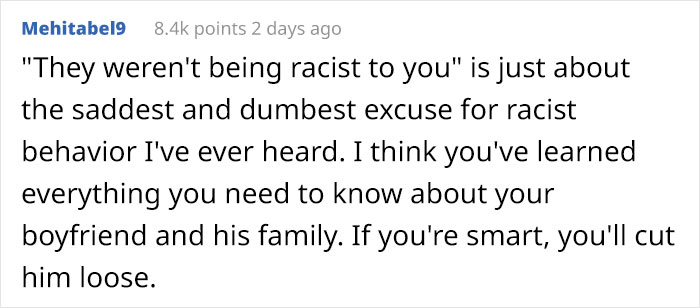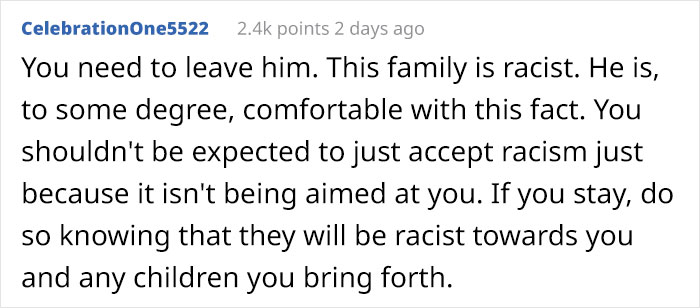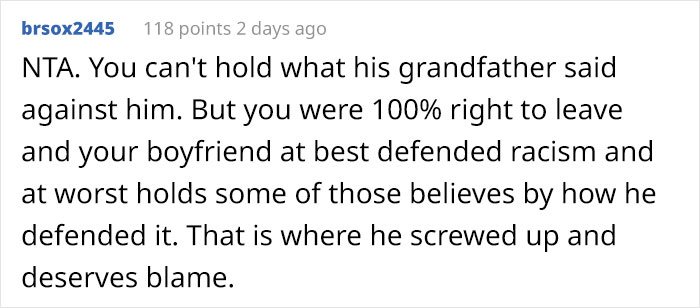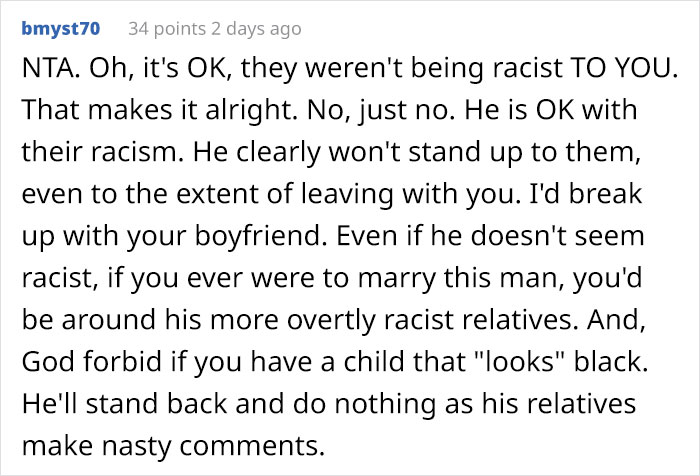Some breakups don’t have a definitive reason. Sometimes you don’t know why, but things simply aren’t working out. That’s probably when the breakup hurts the most. On the other hand, sometimes your partner does such an overtly offensive thing that it’s clear as day you should’ve dumped them long ago.
Although insignificant, this might be one comforting aspect for the OP of this story. The person asked other netizens on the AITAH subreddit whether it was rude to leave a New Year’s Eve dinner. The reason? The boyfriend and his family turned out to be flaming racists.
Bored Panda asked Monnica T. Williams, a board-certified licensed clinical psychologist and professor at the University of Ottawa, for some comments about this situation. Dr. Williams’ research focuses on BIPOC mental health, culture, and psychopathology, and she has published over 200 scientific articles on these topics.
She has 40 book chapters as well as many editorials, commentaries, scientific reports, and practice guidelines under her name, too. Dr. Williams was kind enough to tell us more about coping with the stress of racism and racial trauma. Read her expert insights below.
More info: Monnica T. Williams | Laboratory for Culture and Mental Health Disparities | uOttawa | Blog
With a New Year’s Eve celebration, we usher in the new year – it should be fun and lighthearted

Sadly, one netizen’s New Year’s Eve party experience got sour because of insensitive racial remarks
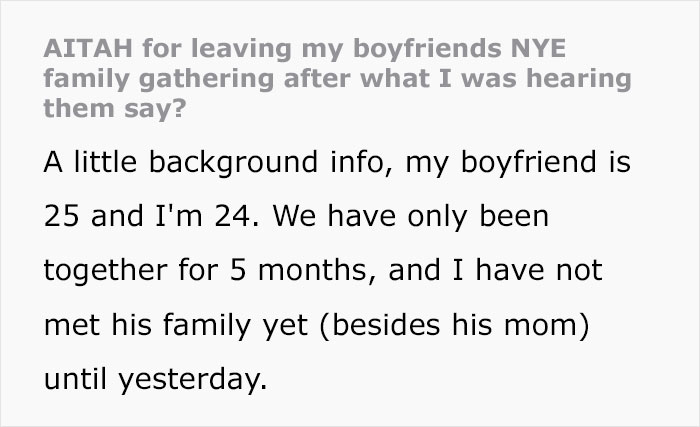
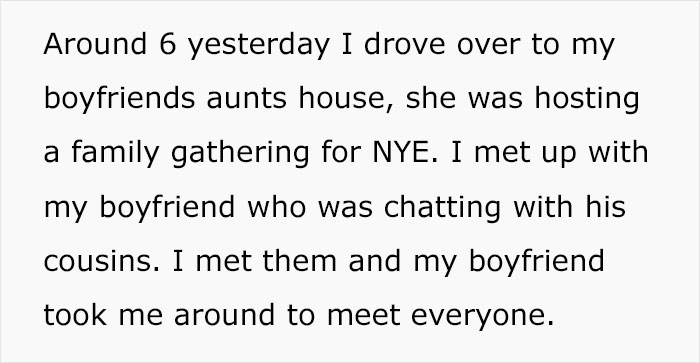
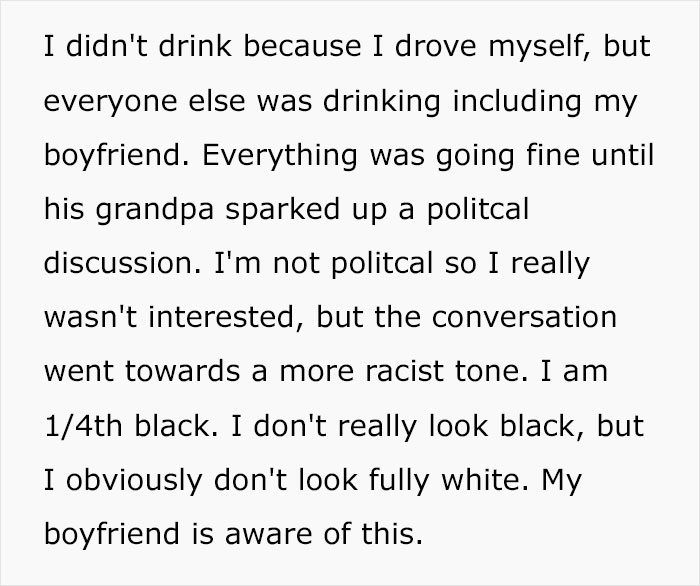
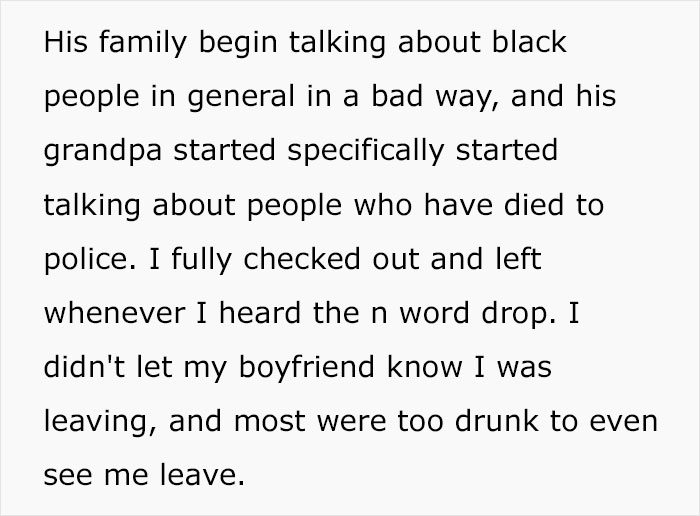

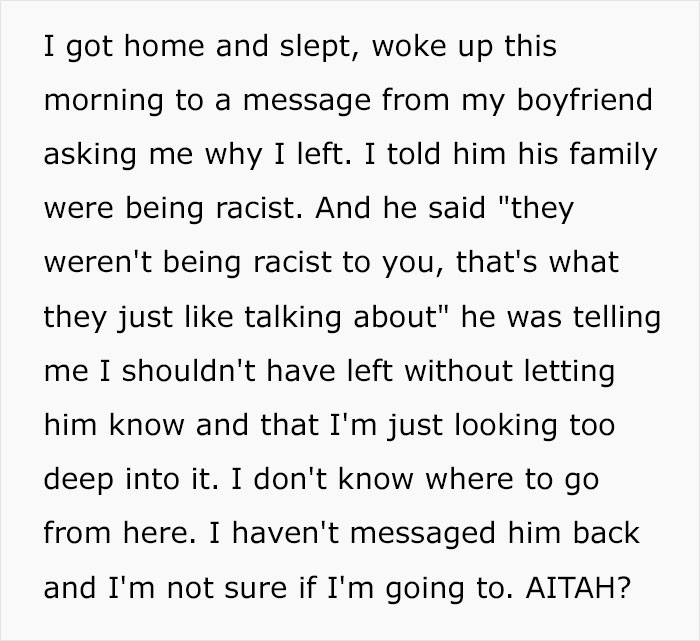
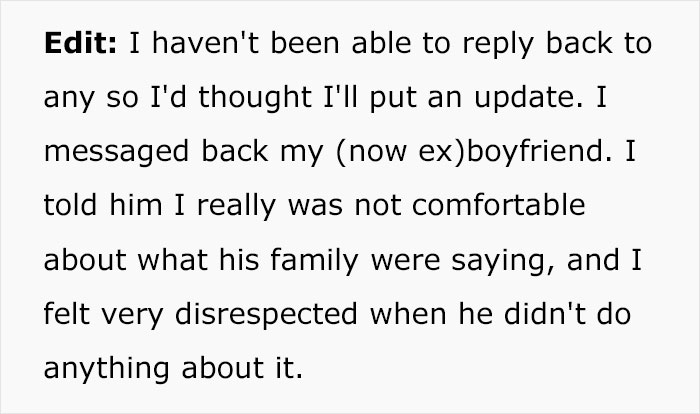
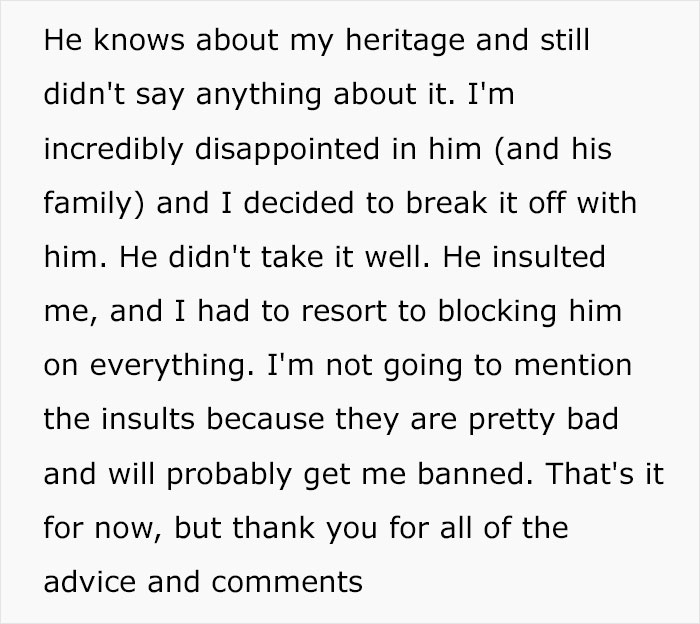
Dr. Monnica T. Williams presents one case study of a young woman who experienced racial trauma
Bored Panda asked Dr. Monnica what emotional impact racially insensitive remarks can have on an individual. “A person experiencing this could feel a range of negative emotions – shock, anger, humiliation, shame – to name a few,” the professor says.
In an article on her blog, Dr. Monnica describes a similar case from one of her graduate students. A young woman named Amy experienced her boyfriend and his family assaulting her with racial slurs. After their breakup, Amy became depressed. She lost academic motivation. She started developing anxiety, insomnia, and having low self-esteem. Upon seeing items that reminded her of the relationship, she had panic attacks.
Her therapist determined that she was experiencing symptoms of PTSD as a result of racial trauma. Dr. Monnica writes that racial trauma happens “due to experiences of racism.” These experiences range from workplace discrimination or hate crimes to everyday discrimination and microaggressions.
How did Amy get better? Her therapist used UnRESTS, a clinician-administered, semi-structured interview. “It’s designed for use with clients who are members of stigmatized racial and ethnic groups,” Dr. Monnica writes in her blog post. “Amy responded well to the strong initial affirmation of her ethno-racial identity, as well as values she identified with that were part of her cultural heritage.”
“[Her] treatment plan included self-care and academic organizational skills training as well as empathic support in processing the racist incident and the emotional betrayal by her ex-boyfriend.” Over time, her symptoms improved, she regained her academic motivation, and attained confidence in her personal values.

Image credits: Alex Ivashenko (not the actual photo)
The boyfriend was very much at fault in this situation and should have done better
The response or lack of intervention from the partner in this story is what really stands out. Dr. Monnica tells Bored Panda that “the person experiencing the remarks would feel disappointed and upset that their boyfriend, who is supposed to care, just stood by and did nothing.”
Although disappointing, such a reaction might not be very surprising. “Assuming the [OP] is a person of color and boyfriend is white, white people are socialized not to call out racist comments,” the clinical psychology professor explains. “And it can be especially hard to confront one’s family members. Even so, that is no excuse.”
Dr. Monnica concludes that the person was right to leave. “That is the best possible self-care,” she says. “Racism is abuse, and no one should be forced to endure abusive speech.” We already know from the OP’s update that the relationship ended.
However, Dr. Monnica says that if a person plans to make such a relationship work, there should be a serious conversation. The boyfriend should know how he made his significant other feel. The person should also outline their expectations for his behavior when people say racist things in their presence and make sure both of them are on the same page.
Dr. Monnica Williams covers the effects of racial insensitivity in her upcoming book, A Clinician’s Guide to Healing the Wounds of Racial Trauma: A 12-Session CBT-Based Protocol.

Image credits: cottonbro studio (not the actual photo)
Commenters empathized with the OP, congratulated them on the decision, and condemned the whole family
